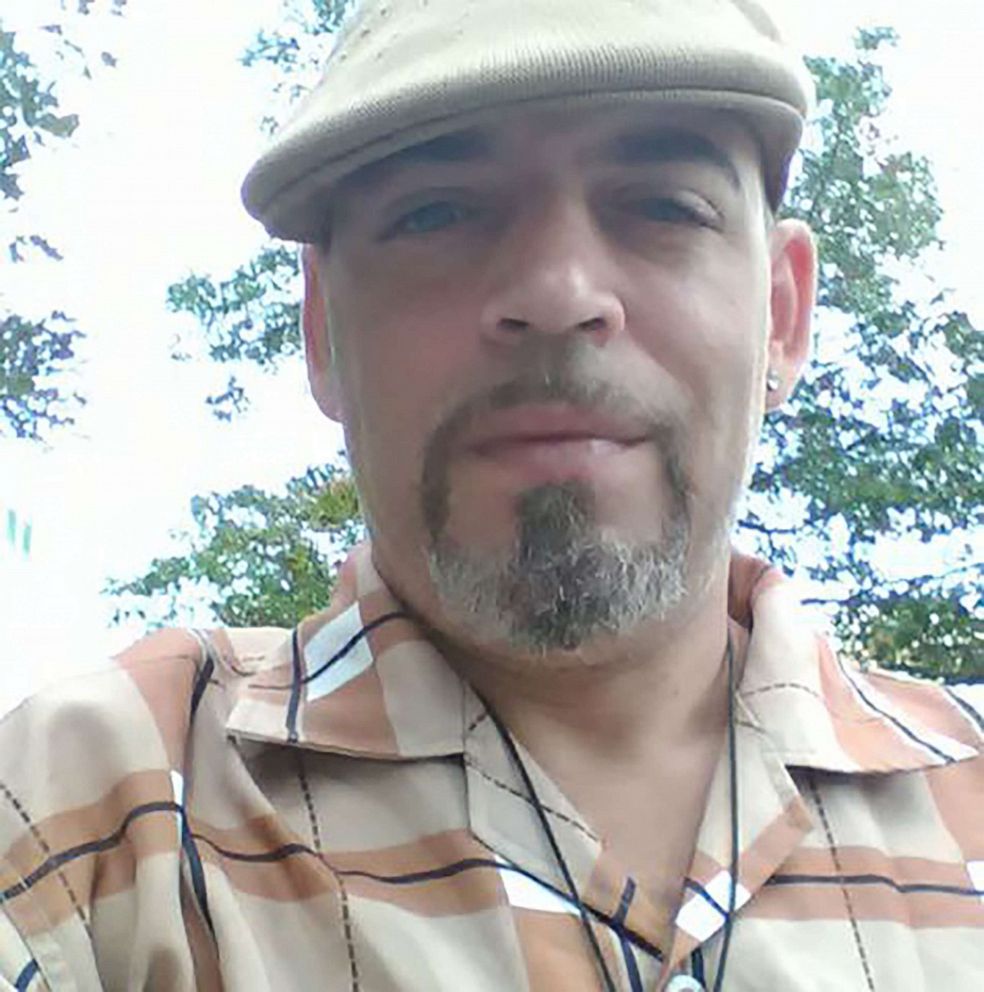Jurors in murder trial of former Ohio police officer offered contrasting theories in killing of Andre Hill
Jurors heard contrasting theories during opening statements in the murder trial of former Columbus, Ohio, police officer Adam Coy who is accused of killing Andre Hill, an unarmed Black man, in December 2020.
While a prosecutor on Thursday painted the defendant's actions as "reckless" and "unreasonable," a defense attorney contended Coy was "justified in using deadly force."
Coy, who is white, is facing charges of causing Hill's death, felonious assault and reckless homicide stemming from the Dec. 22, 2020, shooting. Prosecutors said the 47-year-old Hill was holding a cell phone in one hand and a set of keys in the other when he was shot dead in the garage of a home belonging to a friend.
In her opening statement, Assistant Franklin County Prosecutor Renee Amlin said Hill was complying with Coy's orders to step out of the garage when he was shot four times.
"The state of Ohio expects that at the end of this case, it will have proven to you beyond reasonable doubt that the defendant Adam Coy is guilty of all three of those crimes," Amlin told the jury seated in Franklin County Court of Common Pleas.

Amlin said that among the prosecution witnesses slated to testify is Columbus police Officer Amy Detweiler, who was with Coy when the shooting erupted around 1:30 a.m. Both officers responded to a neighbor's 911 call complaining about a suspicious SUV parked on the street with its engine running.
She said that before the shooting, Coy approached Hill who was seated in the running SUV and that Hill explained he was waiting for a friend to come out of her home. She said Hill showed Coy a text message on his phone from his friend, reading, "I'll be right out."
Amlin said that when Coy went back to his patrol car, Hill exited the SUV and entered the open garage of his friend's home. She said that when Ditweiler arrived separately at the scene, the two officers approached Hill and instructed him to step out of the garage and that Hill was shot when he complied with Coy's orders.

The jury, according to Amlin, will also be shown Coy's body-worn camera video that captured the shooting.
Amlin told the jurors that the state would prove beyond reasonable doubt that Coy was "reckless" and that his use of deadly force was not justified.
"The evidence will show that Andre Hill was not armed. He did not have a firearm," the prosecutor said.
But defense attorney Kaitlyn Stephens told the jury that Coy was following police training when he perceived Hill as a threat.
"You are going to hear from the state's own witnesses that actual possession of a weapon is irrelevant, that police officers are allowed to be mistaken," Stephens said.
She told the jury that Coy believed a "mass of keys" Hill had in his right hand was a revolver and that the officer was forced to make a split-second decision to open fire in self-defense.
"You are going to hear that on Dec. 22, 2020, my client believed he was going to get shot. He yells 'gun, gun,' steps off the line, draws his weapons and fires at what he honestly believed was a revolver being leveled at his direction," Stephens told the panel. "You are going to hear that he was mistaken, that it was not a revolver, but instead that glint of steel turned out to be a metal mass of keys."
Stephens said the defense plans to call two Ohio veteran officers to testify as experts on police training and to counter the testimony of the state's police training expert.
"You are going to hear that officers do not have to wait until they see the glint of steel, that what matters is how the hand was being presented because an action is faster than a reaction," Stephens said.
Stephens added, "The evidence will show that our client was not reckless. He did what he was trained to do, and what he was trained to do was shoot to stop the threat."
Coy was fired from the Columbus Police Department about a week after the shooting.
About a month after the shooting, Coy was arrested and indicted in the killing of Hill. Coy has pleaded not guilty to the charges and has not made any public comments on the case.
If convicted, Coy, who is free on $1 million bail, could face a sentence of life in prison without the possibility of parole.
Neither Coy nor Detweiler turned their body-worn cameras on until after the shooting, but Coy's camera had a "look-back" function that automatically activated and recorded 60 seconds of the episode without sound, including capturing the shooting.
The body camera footage also showed that as Hill lay dying on the floor of the garage, none of the officers who responded to the incident appeared to immediately provide first aid, officials said.
National civil rights attorney Benjamin Crump, who is representing Hill's family, alleged that the officers waited up to 15 minutes before before they started giving Hill first aid, citing his review of the body camera footage.
After officers on the scene turned their body cameras on, a woman came out of the house and told officers that Hill was a guest and said, according to body camera footage released in the case, "He was bringing me Christmas money. He didn't do anything."
In May 2021, the City of Columbus agreed to a $10 million wrongful death settlement with Hill's family, the highest amount ever paid by the city.
The indictment of Coy came just days after the Columbus City Council also passed Andre's Law, which was named after Hill and requires Columbus police officers to turn on their body cameras when responding to calls and to immediately render first aid after a use-of-force incident.



